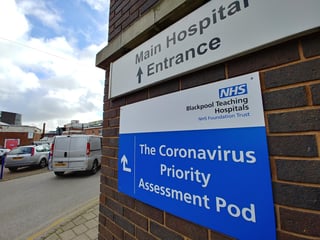Prime Minister Boris Johnson is 'stable' and in 'good spirits' after second night in hospital
and live on Freeview channel 276
The Prime Minister's condition remains "stable", according to the latest bulletin from Downing Street, after spending a second night in hospital.
He was said to be in "good spirits" in St Thomas' Hospital in London where he is undergoing "close monitoring" after his condition worsened on Monday.
Advertisement
Hide AdAdvertisement
Hide AdThe prime minister, 55, tested positive for coronavirus 12 days ago.
Foreign Secretary Dominic Raab, who is deputising for the PM, said on Tuesday he was "confident" the PM would recover from this illness, describing him as a "fighter".
He said the Prime Minister is continuing to receive updates and briefings in hospital.
Mr Johnson had on Monday been due to oversee a three-week review of the lockdown rules - brought in last month to curb the spread of the disease.
Advertisement
Hide AdAdvertisement
Hide Ad

"We need to start seeing the numbers coming down and that's when you're in the negative," he told BBC Breakfast.
"That's when you have a sense when that's sustained over a period of time, that you can see it coming out of that.
"We're not there yet and I don't exactly know when we will be. The scientists will tell us that they are constantly modelling the data and they're constantly looking at those stats.
"We should also remember there is always a lag of a couple of weeks in the hospitalisation and death rate data behind the actions that we've taken to try to slow it down, because that's the nature of the disease."
